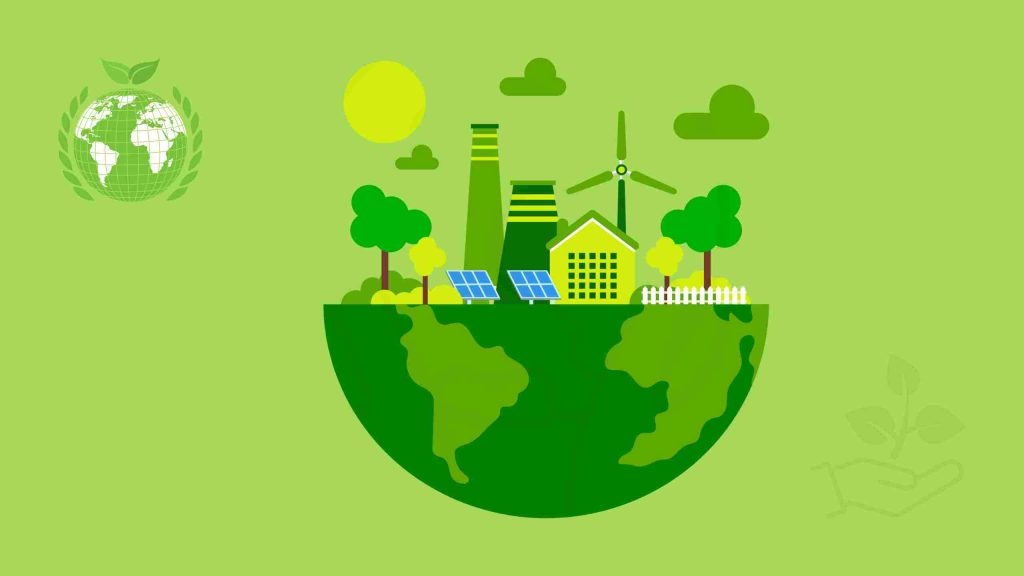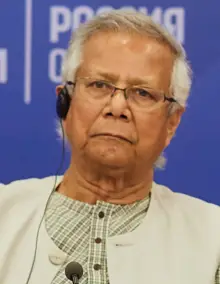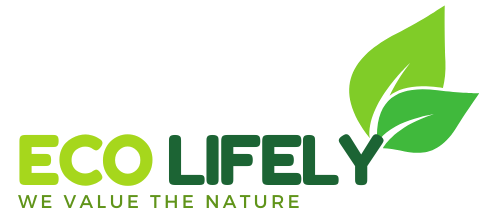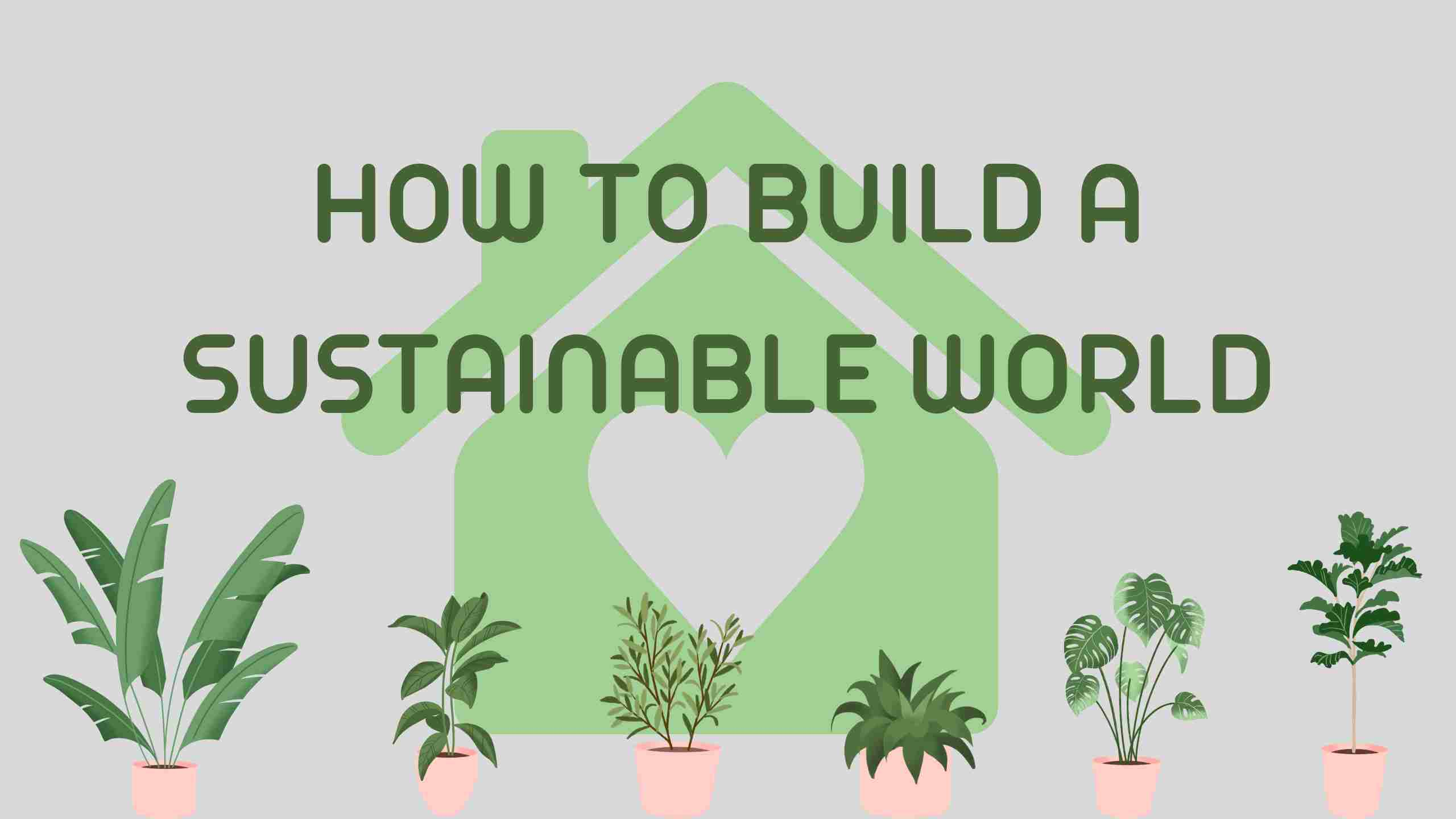Introduction
How to build a sustainable world? In today’s rapidly changing world, the concept of sustainability has become more than just a buzzword; it’s a critical necessity. As we face pressing global challenges like climate change, economic inequality, and social injustice, the need for sustainable solutions has never been more urgent. Building a sustainable world isn’t just about preserving our environment—it’s about creating a future where everyone can thrive.
One influential voice in this movement is Nobel laureate Prof. Muhammad Yunus, whose groundbreaking book A World of Three Zeros provides a powerful framework for how we can create a better, more sustainable future. In this book, Prof. Yunus outlines his vision of a world with zero poverty, zero unemployment, and zero net carbon emissions—a vision that has inspired social businesses and communities across the globe.
This article will dive into Prof. Yunus’ Three Zeros theory and explore how it offers a roadmap to building a truly sustainable world. From eliminating poverty to fostering full employment and addressing climate change, this approach not only highlights the urgent challenges we face but also offers practical solutions to overcome them. Stay with us as we explore how these ideas can transform our world—and how you can be part of the change.

The Three Pillars of Sustainability
In order to build a sustainable world, it’s crucial to understand the foundational principles that guide sustainability. These principles, often referred to as the “Three Pillars of Sustainability,” include environmental, economic, and social sustainability. Each pillar plays a vital role in shaping a balanced, sustainable future, ensuring that our development today does not compromise the ability of future generations to thrive.
1. Environmental Sustainability
Environmental sustainability focuses on the preservation of natural resources and the reduction of environmental degradation. As human activities continue to put pressure on ecosystems, this pillar emphasizes the importance of reducing pollution, managing resources responsibly, and protecting biodiversity. Sustainable practices such as reducing carbon footprints, embracing renewable energy, and promoting the conservation of land and water resources are key to ensuring that the planet remains habitable for future generations.
Incorporating green technologies, reducing waste through recycling, and shifting towards a circular economy—where products are reused, repurposed, and recycled—are vital strategies for environmental sustainability. Without a healthy environment, economic and social development cannot be sustained in the long run.
2. Economic Sustainability
Economic sustainability ensures that economies are structured in a way that supports long-term growth without negatively impacting environmental or social factors. This pillar calls for economic practices that benefit society as a whole, rather than focusing on short-term profits for a select few. Responsible consumption and production patterns, fair distribution of wealth, and the promotion of sustainable businesses are critical for a stable economy that serves all members of society.
The rise of the green economy—a system where businesses and industries operate in ways that reduce environmental impact and promote social equity—is a key aspect of economic sustainability. Governments, corporations, and communities are now being encouraged to adopt practices that support both environmental protection and economic prosperity, such as investing in renewable energy industries or supporting fair trade.
3. Social Sustainability
Social sustainability involves creating an equitable society where all individuals have access to basic human needs such as education, healthcare, and opportunities for economic advancement. It emphasizes the need to address social inequalities, promote inclusion, and foster strong, cohesive communities.
Empowering marginalized groups and ensuring that economic and environmental policies benefit everyone, not just a privileged few, is essential. Social sustainability also focuses on improving the quality of life for current and future generations by promoting diversity, human rights, and social justice. Education and healthcare are fundamental to this pillar, as they empower individuals to participate meaningfully in the economy and society.
How These Pillars Intersect
While each of these pillars addresses different aspects of sustainability, they are deeply interconnected. A sustainable world requires the simultaneous nurturing of the environment, a fair economic system, and social equity. By achieving harmony between these pillars, we can build a future that supports both human prosperity and the health of the planet.
Prof. Muhammad Yunus’ vision in A World of Three Zeros aligns closely with these pillars, particularly through his focus on social business models that aim to eradicate poverty, create employment, and reduce environmental damage. In the following sections, we will explore how his theory provides a practical approach to achieving sustainability in all three dimensions.
Understanding Prof. Muhammad Yunus’ ‘A World of Three Zeros’

Credit: https://en.wikipedia.org
In his revolutionary book, A World of Three Zeros, Nobel Peace Prize laureate Prof. Muhammad Yunus offers a bold vision for reshaping the world. The “Three Zeros” refer to a world with zero poverty, zero unemployment, and zero net carbon emissions—an ideal framework for building a sustainable and equitable future. This theory not only addresses today’s global challenges but also provides practical solutions that focus on social business and human-centric development. Let’s break down each of these components and understand how they contribute to a sustainable world.
1. Zero Poverty
The idea of “Zero Poverty” focuses on eliminating poverty through the use of social businesses and financial inclusion. Prof. Yunus, who is widely recognized for founding the Grameen Bank and pioneering microfinance, argues that traditional businesses often overlook the most vulnerable populations. His social business model focuses on solving societal problems while generating income, reinvesting profits back into the mission rather than maximizing wealth for shareholders.
Through social businesses, low-income individuals and marginalized communities are provided with the tools, education, and financial resources necessary to lift themselves out of poverty. By breaking the cycle of poverty, people can contribute to the economy in a sustainable way, reducing their reliance on aid and fostering long-term community development.
How Zero Poverty Supports Sustainability
- Poverty reduction leads to better access to education, healthcare, and opportunities, which are vital for a thriving society.
- Empowered individuals contribute to economic stability and are more likely to adopt sustainable practices, as their basic needs are met.
2. Zero Unemployment
The second pillar of Yunus’ theory is “Zero Unemployment,” which envisions a world where everyone has the opportunity to work and contribute productively. Instead of viewing unemployment as a natural consequence of economic cycles, Yunus advocates for entrepreneurship as a solution. By fostering an entrepreneurial mindset and promoting social businesses, more individuals can create their own livelihoods, especially in communities where traditional jobs may be scarce.
Yunus suggests that businesses should be created not just for profit but to solve specific social problems. These businesses provide employment opportunities for people from all walks of life, including those who have been left behind by conventional job markets. Additionally, by focusing on local, community-based solutions, social businesses encourage self-reliance and reduce dependence on external aid.
How Zero Unemployment Supports Sustainability
- Reducing unemployment helps build stable, resilient communities where individuals can support themselves and their families.
- Employment through social businesses empowers people to make sustainable choices, as they are no longer struggling for basic survival.
3. Zero Net Carbon Emissions
The third zero in Yunus’ vision is “Zero Net Carbon Emissions,” a goal that directly addresses the environmental pillar of sustainability. Reducing carbon emissions is essential to combatting climate change and ensuring the long-term health of the planet. Yunus emphasizes the role of businesses in leading the shift towards green energy and sustainable practices. He advocates for social businesses to develop and scale solutions that reduce carbon footprints, such as renewable energy projects, eco-friendly products, and sustainable agriculture.
By incorporating carbon-reduction strategies into their operations, social businesses can not only reduce their environmental impact but also inspire other industries to follow suit. The concept of zero net carbon emissions aligns closely with the broader sustainability movement, which focuses on preserving natural resources for future generations.
How Zero Net Carbon Emissions Supports Sustainability
- Reducing carbon emissions is crucial for mitigating climate change and protecting ecosystems.
- By transitioning to clean energy and sustainable practices, businesses can reduce long-term environmental damage and help build a more resilient planet.
Prof. Yunus’ Vision and the Path to Sustainability
Prof. Yunus’ Three Zeros vision presents a holistic approach to sustainability by addressing economic, social, and environmental issues in tandem. The combination of eliminating poverty, fostering full employment, and reducing carbon emissions is a powerful blueprint for a world where human prosperity and environmental health can coexist. His approach moves beyond the traditional business model, placing social good at the heart of economic development.
In the next section, we will explore how this theory can be practically applied to help create a more sustainable world.
How ‘A World of Three Zeros’ Helps Build a Sustainable World
Prof. Muhammad Yunus’ A World of Three Zeros theory—focused on achieving zero poverty, zero unemployment, and zero net carbon emissions—offers a transformative roadmap for creating a sustainable world. By addressing these three critical areas, Yunus provides a practical approach that integrates social, economic, and environmental sustainability. Let’s explore how each component contributes to building a truly sustainable future.
1. Zero Poverty: Empowering People Through Social Business
Poverty eradication is one of the most important steps in building a sustainable world. Prof. Yunus advocates for the development of social businesses as a key tool for lifting people out of poverty. Unlike traditional businesses that prioritize profit, social businesses are designed to solve societal problems while generating income. By reinvesting profits back into the business, these enterprises continue to grow and serve the community without relying on external donations or government aid.
Through initiatives like microfinance, social businesses empower individuals—especially those from marginalized communities—to start their own businesses, support their families, and contribute to the local economy. When people have the resources to meet their basic needs and improve their standard of living, they become active participants in the economy and are more likely to adopt sustainable practices.
How Zero Poverty Supports Sustainability:
- Economic Stability: When individuals escape poverty, they can invest in education, healthcare, and sustainable living, reducing pressure on social systems.
- Resource Management: Communities with access to resources are more inclined to adopt long-term, sustainable resource management practices, protecting both the environment and their livelihoods.
2. Zero Unemployment: Creating Jobs Through Entrepreneurship
Prof. Yunus’ vision of “Zero Unemployment” revolves around fostering entrepreneurship and creating job opportunities for everyone, regardless of their background. In a world where traditional jobs are often scarce, especially in developing regions, Yunus emphasizes the importance of entrepreneurship and social business as tools to create employment.
By encouraging people to start businesses that address local problems, communities become more self-sufficient and resilient. Social businesses also tend to focus on solving social or environmental issues, such as providing affordable healthcare, clean energy, or education. These types of enterprises not only create jobs but also directly contribute to social and environmental sustainability.
How Zero Unemployment Supports Sustainability:
- Economic Empowerment: When people are employed or run their own businesses, they become financially independent and can make informed decisions that benefit both their families and the planet.
- Community Resilience: Local entrepreneurship strengthens communities by providing local solutions, reducing reliance on unsustainable external systems, and fostering a sense of self-sufficiency.
3. Zero Net Carbon Emissions: Combating Climate Change
The environmental aspect of Yunus’ theory is captured in the goal of achieving “Zero Net Carbon Emissions.” With climate change posing one of the greatest threats to the future of humanity, reducing our carbon footprint is critical to ensuring environmental sustainability. Yunus encourages businesses, particularly social businesses, to lead the way in transitioning to green energy, reducing waste, and adopting sustainable production methods.
By investing in clean energy, such as solar and wind power, businesses can drastically cut their carbon emissions while providing affordable and sustainable energy solutions to communities. Additionally, adopting circular economy models—where resources are reused, recycled, and repurposed—helps reduce waste and limit the exploitation of natural resources.
How Zero Net Carbon Emissions Supports Sustainability:
- Climate Resilience: Reducing carbon emissions is key to slowing the pace of climate change, preserving ecosystems, and protecting future generations.
- Sustainable Innovation: Businesses that adopt green technologies and sustainable practices set a standard for innovation, encouraging other industries to follow suit and creating a ripple effect of positive environmental change.
Integrating the Three Zeros for a Sustainable World
What makes Prof. Yunus’ Three Zeros vision so powerful is the way it integrates solutions to economic, social, and environmental challenges. By addressing poverty, unemployment, and carbon emissions together, this model ensures that no one is left behind in the journey toward sustainability. Each “zero” feeds into the others—poverty reduction promotes better environmental stewardship, full employment strengthens local economies, and reducing carbon emissions protects the planet for future generations.
Examples of the Three Zeros in Action
- Grameen Shakti (Bangladesh): A social business that provides affordable solar energy solutions to rural communities. This initiative directly supports the goal of Zero Net Carbon Emissions while empowering local communities with clean energy.
- Grameen Bank: By offering microfinance loans, the Grameen Bank helps lift people out of poverty, aligning with the goal of Zero Poverty, while fostering entrepreneurship and job creation, addressing Zero Unemployment.
Prof. Yunus’ vision for a world with zero poverty, zero unemployment, and zero net carbon emissions offers a holistic solution to the global sustainability challenge. By embracing this framework, individuals, businesses, and governments can take meaningful steps toward a more equitable and sustainable world. Together, we can build a future where both people and the planet thrive.
How Individuals and Communities Can Contribute to Building a Sustainable World
A sustainable world can only be achieved when individuals and communities actively participate in promoting and adopting sustainable practices. The responsibility lies with all of us to make conscious choices that reduce our environmental footprint, support economic equity, and foster social well-being. Here’s how individuals and communities can contribute to building a sustainable world:
1. Sustainable Lifestyle Choices
Individuals can make a significant impact through everyday decisions. Simple actions like reducing energy consumption, opting for renewable energy, minimizing waste, and choosing sustainable products are crucial steps. Furthermore, adopting sustainable transportation methods—such as biking, carpooling, or using public transport—helps reduce carbon emissions. Supporting companies that prioritize sustainability and purchasing eco-friendly products can drive change in consumer markets.
How This Supports Sustainability:
- Reduction of Resource Use: Conserving energy and water, minimizing waste, and opting for reusable products reduce the strain on natural resources.
- Environmental Preservation: Personal actions like recycling and reducing plastic usage directly contribute to environmental conservation and reducing pollution.
2. Community-Led Sustainability Initiatives
Communities can take collective action by initiating local projects such as urban farming, renewable energy cooperatives, and waste-reduction programs. These initiatives empower individuals to work together toward a common goal of sustainability. Community gardens, for example, can provide fresh produce while reducing the environmental impact of industrial farming. Similarly, organizing local clean-up efforts and promoting education on sustainability encourages a shared commitment to preserving the environment.
How This Supports Sustainability:
- Social Collaboration: Community efforts amplify the impact of individual actions, fostering a sense of shared responsibility.
- Local Resilience: Sustainable communities become more resilient to environmental and economic shocks, such as climate change or resource shortages.
3. Supporting Social Businesses and Ethical Investments
Individuals can further contribute by supporting social businesses—enterprises designed to solve social and environmental problems. As Prof. Yunus suggests, social businesses reinvest their profits into the community rather than focusing on financial gain. Additionally, ethical investments in companies and organizations that prioritize sustainability help direct financial resources toward causes that promote long-term well-being.
How This Supports Sustainability:
- Economic Empowerment: Supporting businesses that prioritize people and the planet ensures economic activities are in harmony with sustainability goals.
- Sustainable Development: Redirecting investments towards sustainable enterprises drives innovation in green technology and social welfare projects.
4. Advocating for Policy Change
On a larger scale, individuals and communities can advocate for policies that support sustainability. This can include pushing for stronger environmental regulations, clean energy incentives, and policies that address social equity. Grassroots movements have historically played a critical role in advancing sustainability legislation, making it vital for citizens to stay informed and engaged with their local governments.
How This Supports Sustainability:
- Institutional Change: Policy changes driven by community advocacy can have long-term impacts on environmental protection, economic fairness, and social justice.
- Empowerment: When communities come together to demand policy changes, they exercise their democratic power to shape a better future for all.
Conclusion
Building a sustainable world is an ambitious but achievable goal, particularly when guided by frameworks like Prof. Muhammad Yunus’ Three Zeros theory. By focusing on eliminating poverty, reducing unemployment, and achieving zero net carbon emissions, we can address the core issues driving both environmental and economic instability. Individuals, communities, businesses, and governments must collaborate to integrate sustainable practices, foster social businesses, and advocate for policies that promote long-term well-being. As we embrace these collective efforts, we move closer to creating a world where economic equity and environmental sustainability are not just ideals but realities.
This vision of a sustainable world is within our reach, and now is the time for each of us to take meaningful action.
Frequently Asked Questions (FAQs)
1. What is a sustainable world?
A sustainable world is one where economic, environmental, and social systems are balanced to meet the needs of present and future generations. It involves reducing carbon emissions, promoting equitable economic growth, and ensuring access to resources for all. Sustainable practices focus on renewable energy, responsible consumption, and social equity.
2. What are Prof. Muhammad Yunus’ Three Zeros?
Prof. Muhammad Yunus’ Three Zeros theory advocates for:
- Zero Poverty: Empowering people, especially through social businesses, to eliminate poverty.
- Zero Unemployment: Creating jobs through entrepreneurship and social business models.
- Zero Net Carbon Emissions: Reducing the carbon footprint by promoting renewable energy and sustainable practices.
This theory presents a holistic approach to addressing some of the world’s biggest challenges: poverty, unemployment, and climate change.
3. How can individuals contribute to a sustainable world?
Individuals can contribute by:
- Reducing their carbon footprint (e.g., using renewable energy, recycling, reducing waste).
- Supporting social businesses that prioritize solving environmental and social issues.
- Advocating for policies that promote sustainability.
- Making conscious choices like using public transportation, purchasing eco-friendly products, and reducing energy consumption.
4. What are the biggest challenges to building a sustainable world?
Some of the main challenges include:
- Political and Economic Resistance: Many governments and industries prioritize short-term economic gains over long-term sustainability.
- Technological Barriers: Access to green technologies is still limited in some regions.
- Consumer Habits: Changing consumer behaviors and reducing reliance on unsustainable products and lifestyles can be difficult.
- Global Inequality: Developing countries often lack the resources to implement sustainable practices.
5. How does Prof. Yunus’ Three Zeros theory help combat climate change?
The theory’s goal of Zero Net Carbon Emissions focuses on reducing carbon emissions by promoting the use of renewable energy, innovative technologies, and policies that encourage environmental responsibility. By fostering green entrepreneurship and investing in eco-friendly businesses, the Three Zeros approach directly addresses the causes of climate change.
6. What role do social businesses play in building a sustainable world?
Social businesses, as defined by Prof. Yunus, prioritize solving social and environmental problems over profit. These businesses can contribute to sustainability by:
- Creating jobs that support local economies and reduce poverty.
- Focusing on solutions that reduce environmental impact, such as sustainable farming or renewable energy.
- Reinvesting profits to further social goals, which ensures long-term sustainability for communities.

“My name is Leo Jacob, and I hold a Bachelor of Science degree with Honors in Applied Environmental Science and Sustainability from the University of the West of Scotland. Since childhood, I’ve been passionate about living an eco-friendly life. After completing my studies, I dedicated myself to finding simple ways to lead a more environmentally conscious lifestyle. I launched ecolifely.com to share my educational background and practical experiences with everyone, hoping to inspire others to join me in creating a greener, more sustainable world.”













Leave a Reply